The Secrets of my Home City
My adopted hometown of Valencia relaxes on the Mediterranean coast minding its own business
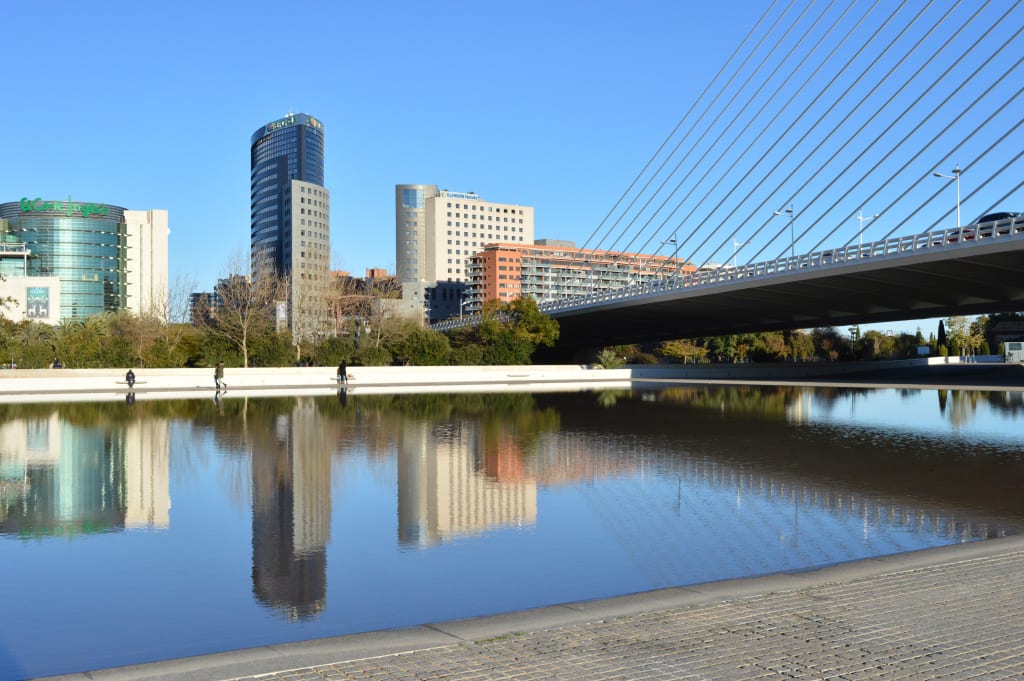
Surrounded by mountains on three sides and the Mediterranean sea on the eastern border, Valencia is cut off meteorologically and philosophically from the rest of Spain. Possibly the world. We do things a little differently here.
We like to keep quiet about the secret pleasures of our city; we don’t want it turning into a copy of Barcelona, our noisy neighbour to the north.
In October 2018, I made Valencia my new hometown after a lifetime in the old one back in England. Valencia is an amazing place to live, mostly. Sometimes it can be frustrating and, occasionally, it’s damn annoying. Here’s why:
The City (La Ciudad)
Valencia is the capital city of the Community of Valencia, an autonomous region of Spain. It’s the country’s third largest city, after Madrid and Barcelona. You’d never guess though; it’s light years away from the noise and restlessness of those brasher cities.
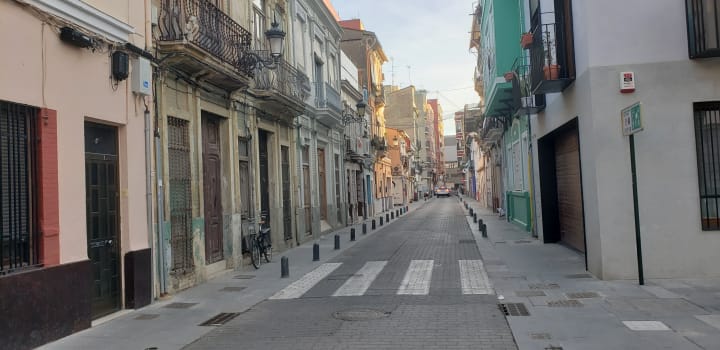
There are about 800,000 of us living in Valencia City and around 100,000 are expats like me. The majority of expats are from South America, Asia and eastern European countries, particularly Romania.
Most Brits, and other western Europeans, live further south in the Alicante province and along the southern coastline. Most North Americans have made their homes in Madrid and Barcelona.
I'm part of a small but active community of native English speakers and speakers of English. We live quietly amongst the locals; we didn’t want to live in the UK-on-Sea down south or with the noisy neighbours.
We chose the relaxed friendly Valencian way of life.
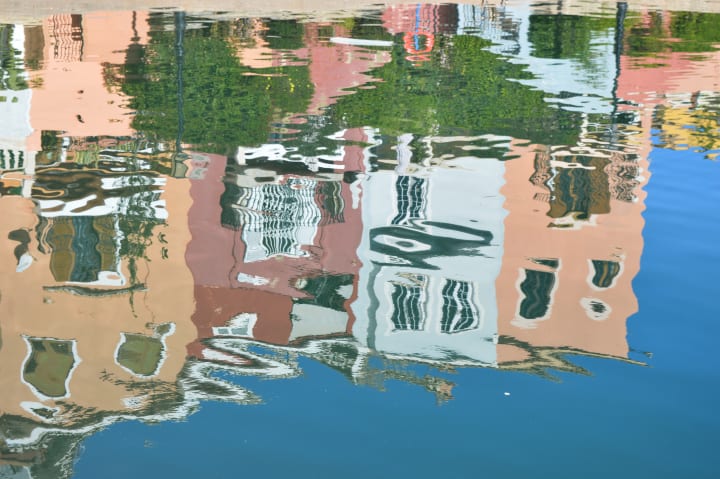
Our expat community has a wide range of interest groups, also attended by the native Valencians: creative writing, book clubs, photography groups, hiking, cycling, running, language exchange and so on. The activities have obviously been curtailed by the COVID pandemic and some have moved online. We will return.
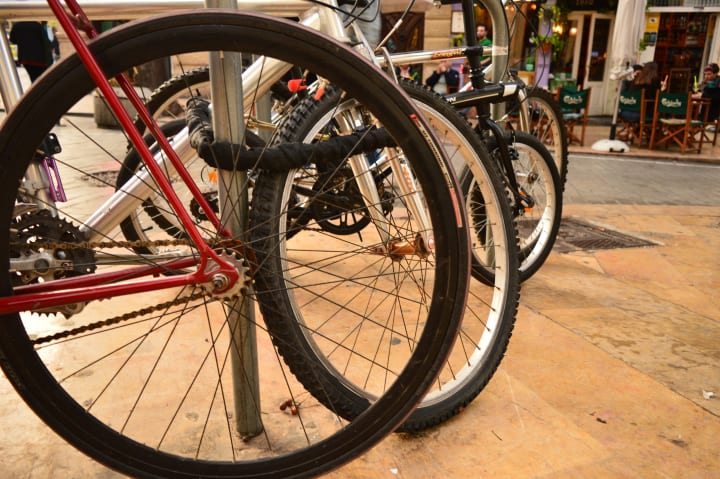
The Language (El Idioma)
You won’t get very far in Valencia without a working knowledge of Spanish; English is rarely used or understood in most places. You’ll get even further if you speak their other official language: Valencian or Valenciano in Castilian Spanish.
Local government information, streets signs and public transport signs are in Valenciano. Many public events are held in Valenciano. The locals speak Valenciano in the street, particularly in barrios (districts) outside the city centre, in the countryside and in many classes in schools and universities.
You won’t be considered for any public position here without being proficient in Valenciano, including working on public transport, schools, museums and theatres.
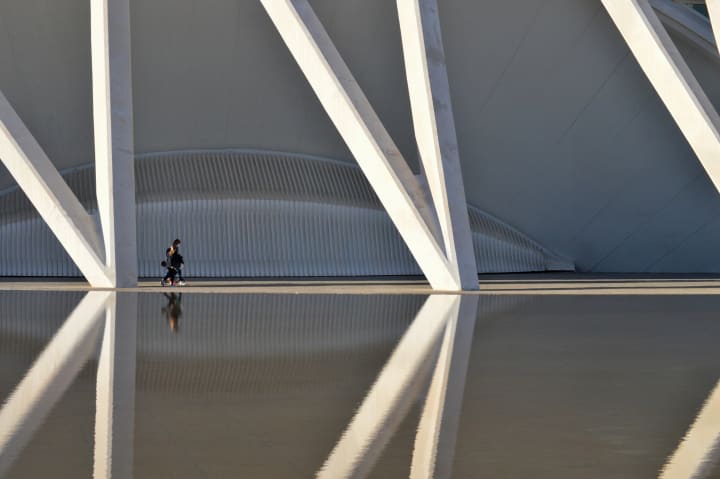
I’ve not needed to learn Valenciano as I’m self-employed so I get by fine with Castilian Spanish. I also live in a barrio where Valenciano is not commonly used.
Valenciano is a kind of mash-up of Spanish, French and Italian, which means it’s not difficult to get the gist of it if you know any of these other languages.
Some people might say Valenciano is almost identical to the Catalan language used by our noisy Catalan neighbours. They wouldn’t say this out loud in Valencia.
You see, Valencianos don't want to be associated with all the fuss our neighbours up north make. The friendly and mild-mannered Valencianos are far too chilled for fuss. That's until you mistake the Valenciano language for Catalan when a touch of ice enters their chilled manner.
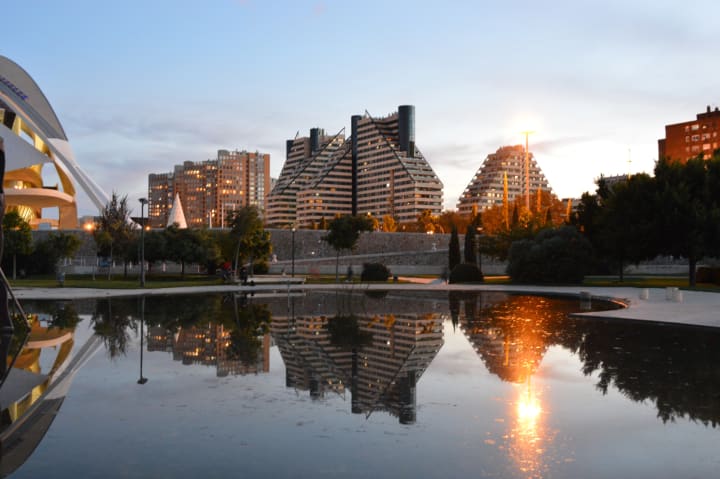
The native Valencianos will not expect you to speak Valenciano in everyday life. When a local speaks to you in Valenciano and they see your blank face, they switch to Castilian Spanish, usually with an apology. Unlike that lot up north where they expect everyone to understand their completely different regional language which isn’t in the slightest like Valenciano.
The River (El Rio)
The River Turia is the centre of much of my, and many Valenciano's, everyday outside life in the city. The River runs around the centre of Valencia in an upside-down horseshoe shape. Or the right way up, if you’re looking the other way.
The thing is, it’s not actually a river, not any more anyway. These days it’s an 11km / 7 mile long park called the Turia Gardens running along the course of the former river.
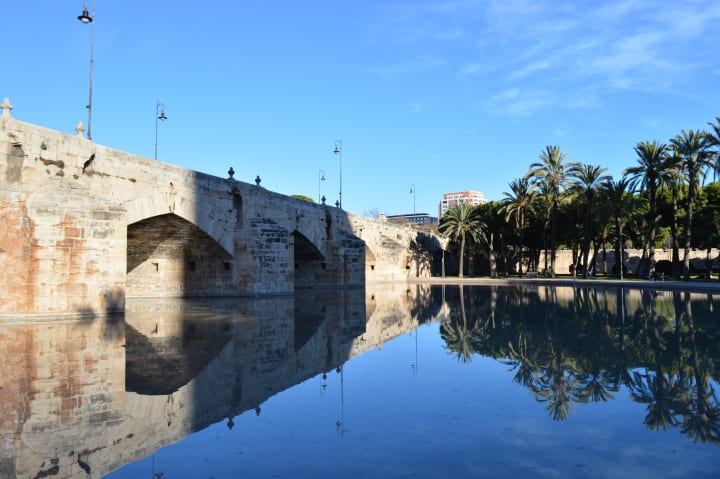
The river Turia was diverted south of the city in the ‘60s following a number of serious floods, the worst and final one being in 1957. The ‘57 flood caused serious destruction and loss of life.
Thanks to the diversion of the river, the city is no longer at risk and we’re all safe and extremely pleased with the new park. As for the area where the river was diverted to, I don’t imagine they’re quite so happy considering its propensity to flood.
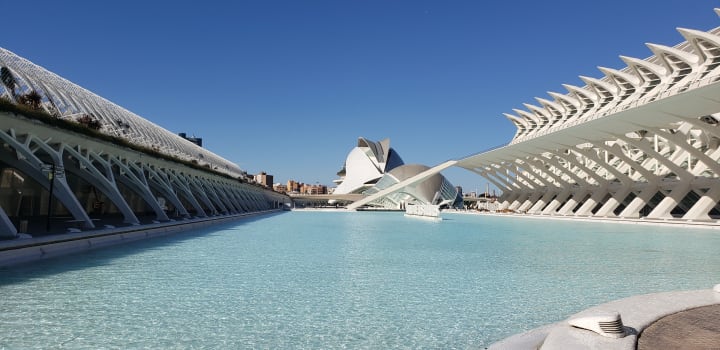
Officially the park is called the Turia Gardens, but everyone calls it 'The River'. This is to differentiate it from 'The River' which is the actual river. That’s cleared that up then.
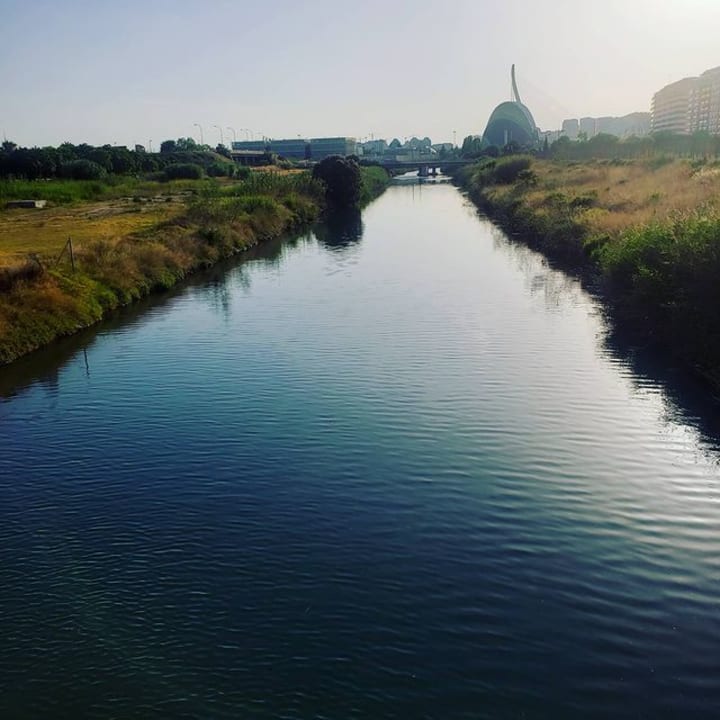
We are all thankful to the older Valencianos for the wonderful Turia Gardens. The local government wanted to turn the course of the diverted river into a ten-lane motorway. That’s politicians for you. Thankfully, the locals campaigned successfully and we got a park instead.
I, and many Valencianos, use the Turia Gardens for our recreation all year round thanks to the amazing micro-climate in Valencia. Every day there are: open-air Pilates, Yoga, Tai Chi, aerobics and other exercise groups, people reading, relaxing, chatting, jogging, cycling and walking. There are football pitches and cycling and running tracks. The pandemic has curtailed these activities somewhat, but not entirely.
Running’s my thing and I defy anyone to find more attractive running tracks than those I use in the Turia Gardens and along Valencia beach.
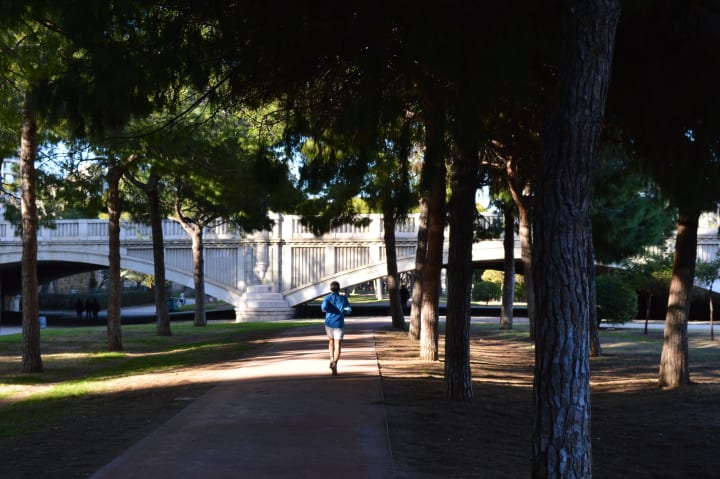
The Old Town (La Ciutat Vella)
Every Spanish town and city has to have an Old Town and Valencia is no different.
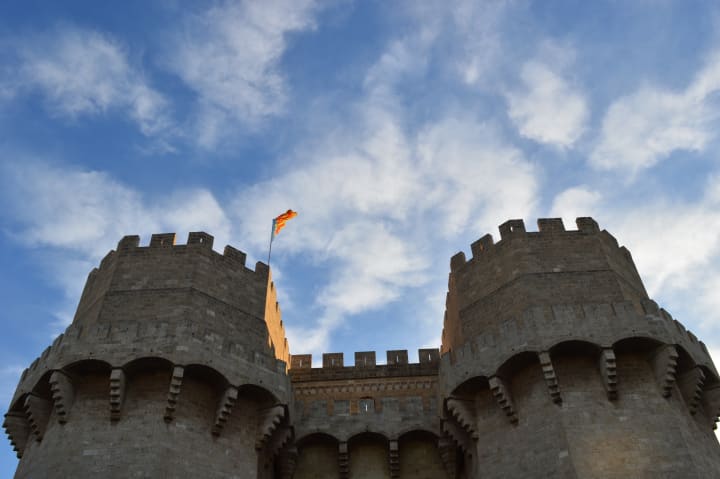
The Old Town, Ciutat Vella in Valenciano, is the location for Valencia’s medieval Cathedral. The Cathedral displays the Holy Grail, the cup from which Jesus is said to have drunk from at the Last Supper.
Quite how or why the Holy Grail ended up in Valencia is not entirely clear. Neither is its discovery here in 1399, fourteen centuries after the Last Supper. The Spanish have an incredible knack for miraculously finding important religious artefacts in various places around their country. The Valencianos don’t like to be left out.
I guess the hundreds of other places around the world that also claim to have miraculously found the Holy Grail might disagree with Valencia's claim, but who am I to doubt the veracity of my adopted hometown's claim?
Luckily, the debate was settled by a local historian who definitively dated Valencia’s Holy Grail as between 1BC and 1AD. I guess that’s settled that one for Valencia. In our minds anyway.
The Old Town is also more than a little quirky, not least with the officially sanctioned street art.
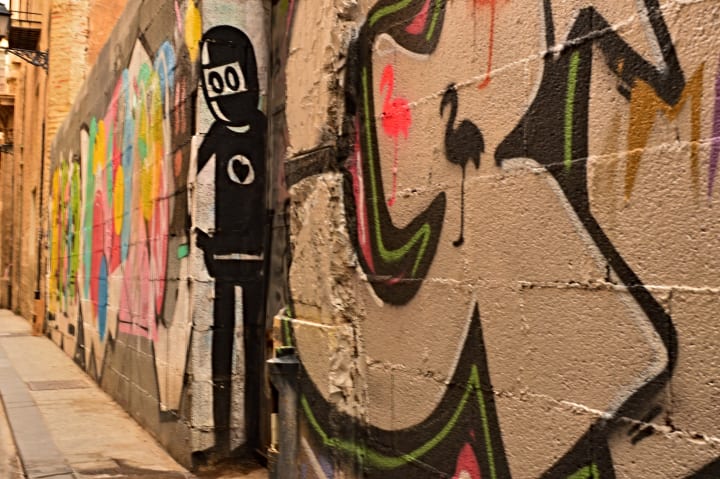
The People (La Gente)
According to a Valencian local government statute, the Valencian people are a nationality. We don’t get a Valencian passport though, just a Spanish one like everyone else, or British in my case. We do get a nice flag.
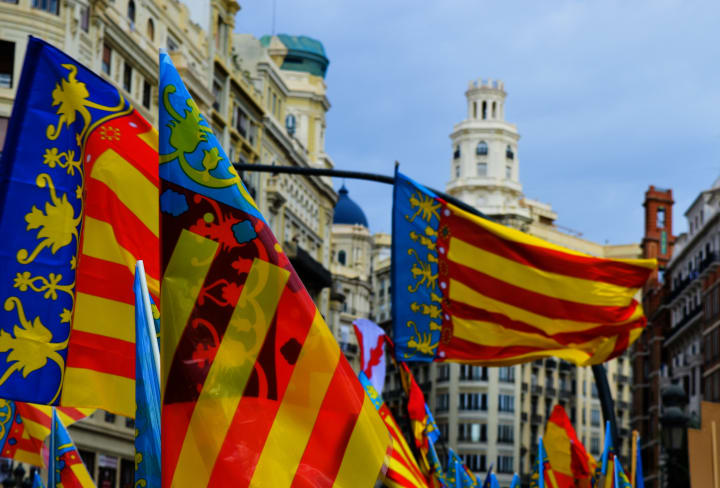
The Valencianos are not into independence, unlike our noisy northern neighbours. They think of themselves as both Spanish and Valenciano: dual nationality. Like me being English and British. And now Valenciano too.
The Meal Times (El Tiempo de Comidas)
Valencianos are a conservative bunch and they follow their centuries-old traditions and routines closely, including meal times.
I do my shopping at either 10 to 11am (el desayuno / breakfast) or 2 to 5pm (el almuerzo / lunch). This is because every other Valenciano eats at this time and everywhere is deserted, except the restaurants and bars.
You’re unlikely to find a restaurant open between 5pm and 8pm either, why would you, the Valencianos don’t eat dinner (la cena) until 10pm? You get the restaurant to yourself before then.
As for the 10am desayuno thing, Valencianos have it with a beer or a glass of wine. 10am in the morning? No wonder they’re so relaxed all day.
The Queuing (La Cola)
Being British, queuing is in my DNA. Queues are not a concept that exist here. Anywhere you’d expect a queue, you’ll find an apparently uncoordinated melee of people meandering around aimlessly like a herd of grazing wildebeest.
I was surprised they even had a word for queue. Then I found they don't. They use la cola, meaning tail, to talk about this strange British custom.
At first I thought it was everyone for themselves, but I quickly spotted something strange: every person instinctively knew their position in what is actually a ‘virtual queue’. Try to jump your position and you’re in big trouble.
It appears they work this out through telepathy. Being originally from England, and born without this ability, I wait until somebody tells me it’s my turn.
So added to a Valenciano’s ability to be friendly and calm, we can add telepathy.
The Culture (La Cultura)
There are many historical and cultural buildings here: museums, churches, theatres and so on, but you can look them up on Trip Advisor if you're interested. As a resident, you tend to visit them once or twice and then get on with day to day living.
Valenciano culture merits a whole book, but here are a few highlights.
The Holiday Culture
The relaxed Valenciano nature changes abruptly for holidays, when they go through a personality change. Holidays mean noise and bedlam. I assume it's a release for all the time they spend being super tranquil.
Any excuse to have fireworks and bang drums to celebrate vague historical events or saints unknown outside of Valencia, is taken enthusiastically. St Vincente anyone? Thought not. Major public holiday.
Spain has about fifteen public holidays a year, which is almost double what I got back in the UK. If you think fifteen is a lot, that’s the half of it. When a public holiday falls on a Tuesday or Thursday, Valencianos will take a día del puente, meaning bridge day, between the weekend and the holiday. Many make two-day puentes when Wednesday is the public holiday.
Now you’re getting closer to over thirty public holidays a year. Exhausting. Not really.
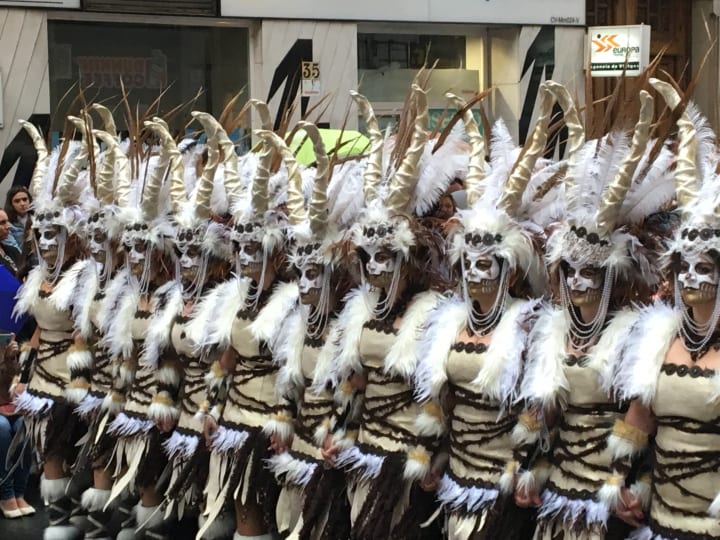
The Music Culture
I count myself as a bit of a musician and the Valencianos consider their music scene to be wide-ranging and special. Coming from near London, I beg to differ.
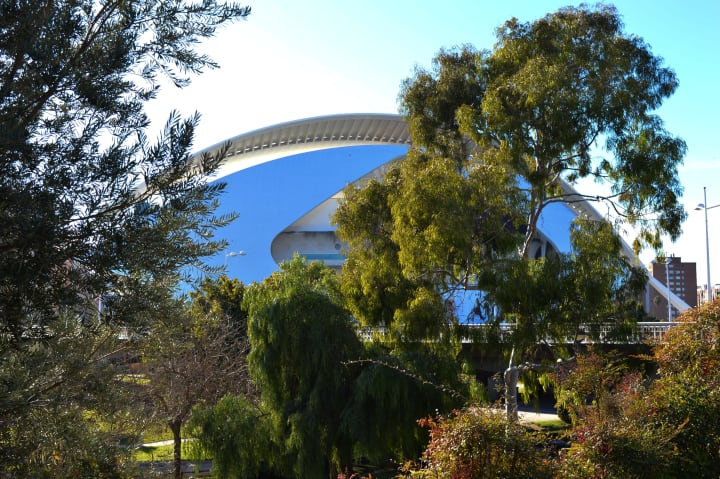
There is a sort-of-music scene but, for me, the music is often third-rate or not my cup of tea. This is a downside to Valencia.
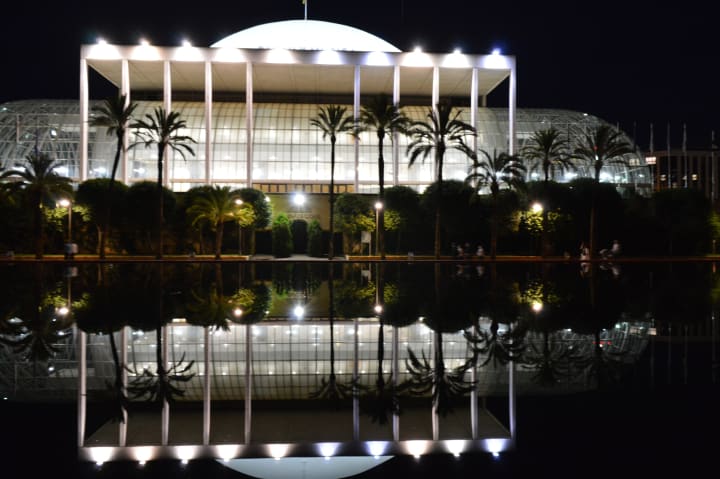
For many Valencianos, the only instrument worth bothering about is the drum. Drums make the most noise for when they undergo their personality changes, I guess. There are entire bands made up only of drums: snare drums, bass drums, little drums, medium drums, big daddy drums, baby drums and mummy drums.
These drum bands march around in parades (they love a parade) or stand at any event where you can make as much noise as possible. And those where you shouldn’t.
Drum bands play by the side of the road for the Valencia Marathon or international cycle races or before football matches or just because they feel like it.
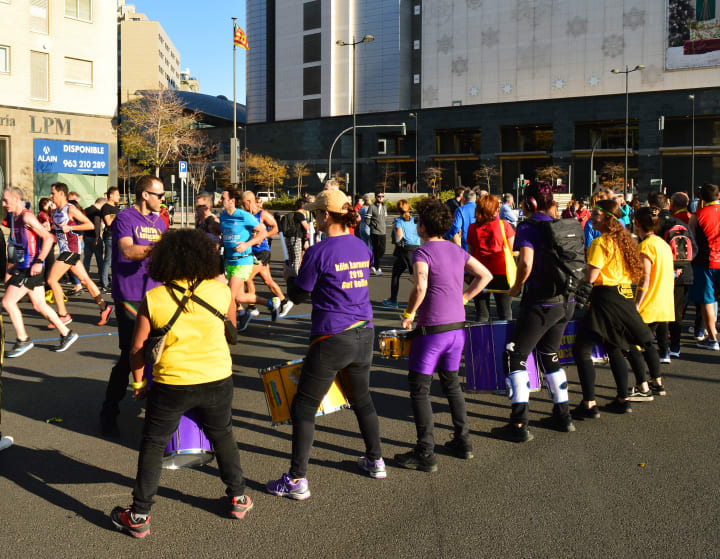
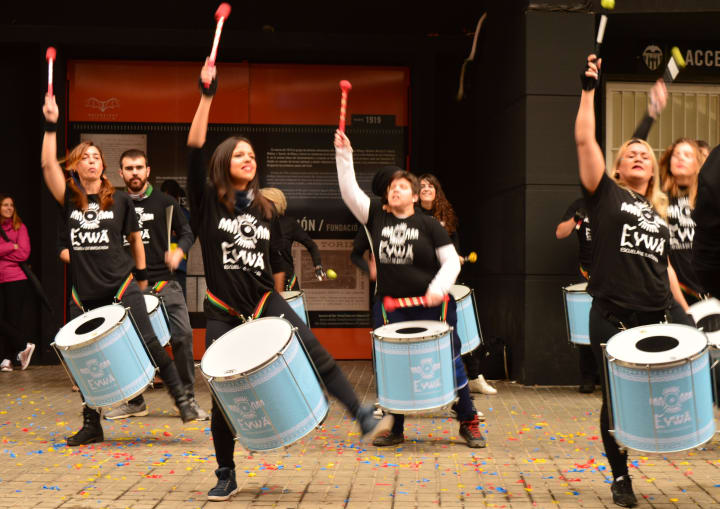
The Cinema Culture
I love the cinema, as do my fellow Valencianos. There are lots of cinemas here. Unfortunately, the Spanish dub non-Spanish language movies into Spanish. Their voice-over artists are highly respected. I don’t know why: it’s truly awful.
If you really want to watch a film where Ryan Gosling sounds like a Spanish Arnold Swarzenegger reading his lines, be my guest. In their dubbed films, every male character sounds like a Spanish Arnold Swarzenegger. Sometimes the women too.
Luckily, there are a couple of cinemas in Valencia where the films are shown in their original language. Or you can watch one of many excellent films made in Spanish. The actors don’t sound like Arnie that way.
The Fallas Culture
No article on Valencian culture would be complete without writing about the Fallas. The locals will tell you the celebration is something to do with Saint Joseph. I think that’s an excuse to provide religious cover for the madness that ensues every year.
The Fallas is officially a one week annual event in March. In practise, it extends into a three-week orgy of 24-hour non-stop explosions with fireworks and noise. It does calm down a little for the 10am, 3pm and 10pm meal times, otherwise it’s best to stay indoors with the curtains closed and ear plugs inserted. Or leave town.
Kids, from two to ninety-five, throw fireworks around in the street for fun. Their fun, not mine. Health and safety rules are totally ignored, if they even exist. I guess all leave is suspended for the fire and ambulance services and local hospitals are put on a war footing. It’s barely organised lunacy.
I suspect more gunpowder is expended in the Falla week(s) every year than during the entire 1st and 2nd World Wars combined. I should probably add in both Gulf Wars too.
Local artisans build amazing statues for the Fallas. These incredible works of art are displayed for a week before being burnt down on the final night of unhinged destruction, usually inches from inconveniently located buildings and people’s homes. Their final destruction is accompanied by fireworks with the power of small atomic bombs and thirty-foot high bonfires.
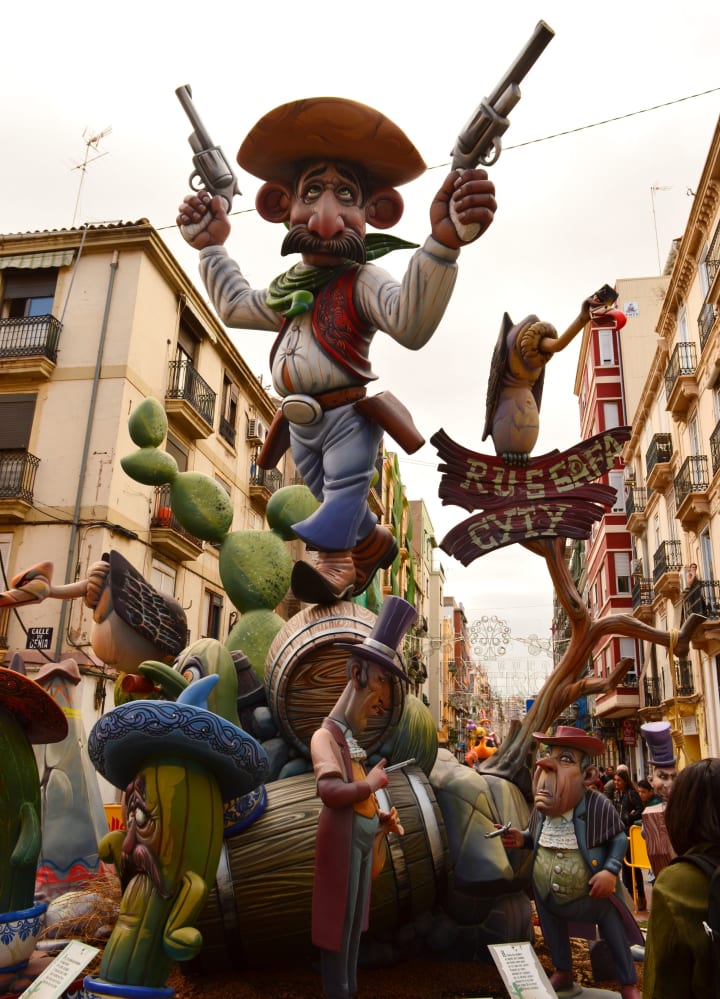
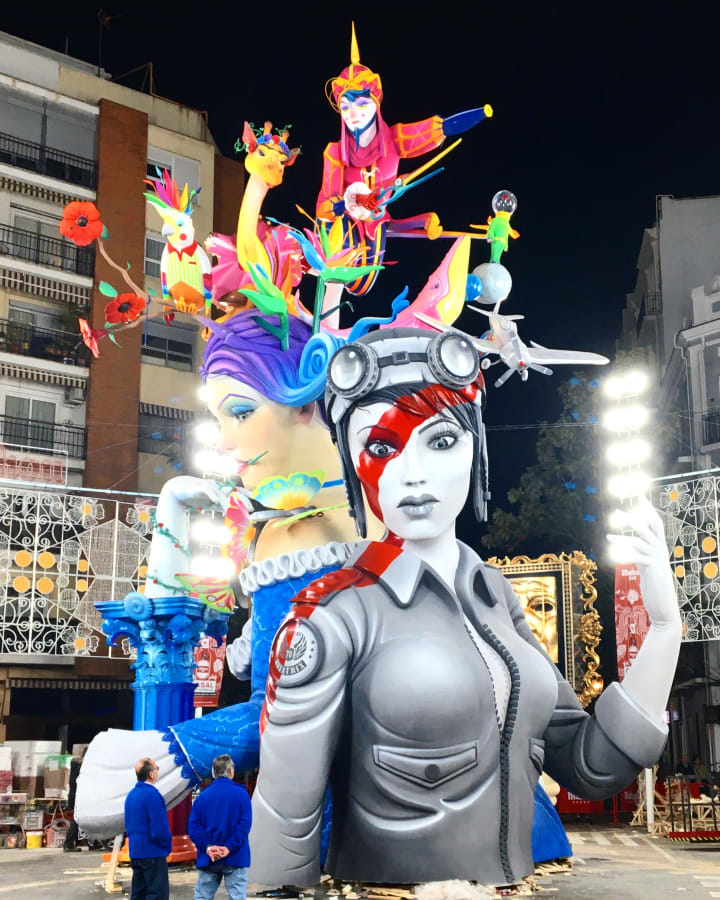
The Beach (La Playa)
I wasn’t going to choose a new hometown that didn’t have a beach. It’s not that I’m a beach person, but it’s nice to use it for a morning run, to have lunch or drink an evening beer by the sea while watching the sun go down. Maybe some tapas too. It’d be rude not to.
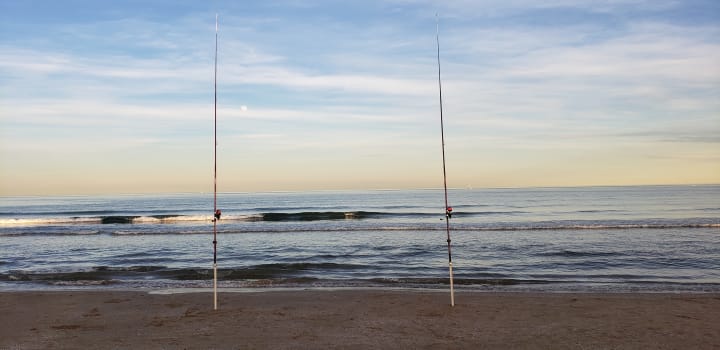
The Valencianos fish directly from the edge of the beach. I’ve never actually seen anyone ever catch anything. The water is shallow a long way out. My guess is that catching fish isn’t really the purpose here.
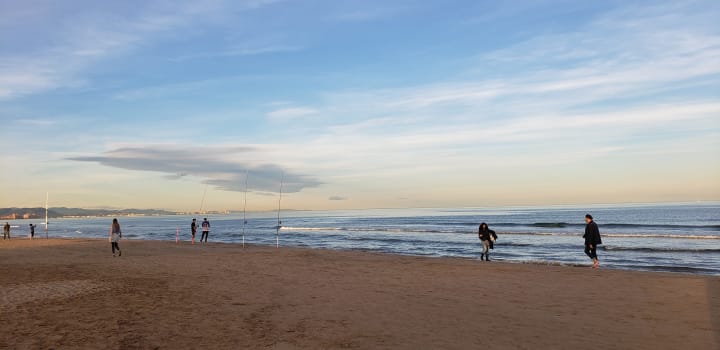
The Transport (El Transporte)
Transport in the city is incredible. Traffic jam? What's that?
There is an extensive public transport network: an underground metro train service, mainline trains, tram services plus an international airport and an extensive road network.
Public transport is cheap, efficient and regular: a flat 90c for any journey around the city. Taxis are inexpensive and the drivers are polite, helpful and trustworthy: I never thought I’d ever write that in a sentence.
The air connection back to London was another major consideration in my decision to come here. I could get regular budget airline flights back to London for €40-€50 return if I shopped carefully ($50-$60). Sadly, flights are not currently running due to the COVID pandemic.
The Bureaucracy (La Burocracia)
In any paradise there are weeds and thistles. I think the bureaucratic patch of paradise has overgrown into a jungle.
Valencia has one of the best and highest speed internet services in the world. We have 600Mbits in both directions over fibre optic cable directly into our apartment. I work from home so this is great.
The trouble is, no one here seems to have considered the internet might be useful to help make everything work more smoothly.
There is little else you can do over the internet in Valencia. Because of this, it seems that half of Valencia’s buildings are government, local government or utility company offices staffed by hundreds of officials brandishing rubber stamps sitting next to rows of printers, photocopiers and in-trays ready to do some bureaucracy.
I’m not altogether sure what they use the internet for, aside from home working and watching football on TV in HD?
Any application or process whatsoever has to be done in person at a government or company office: passports, ID cards, utility services, taxes, driving licences, change of address. Anything.
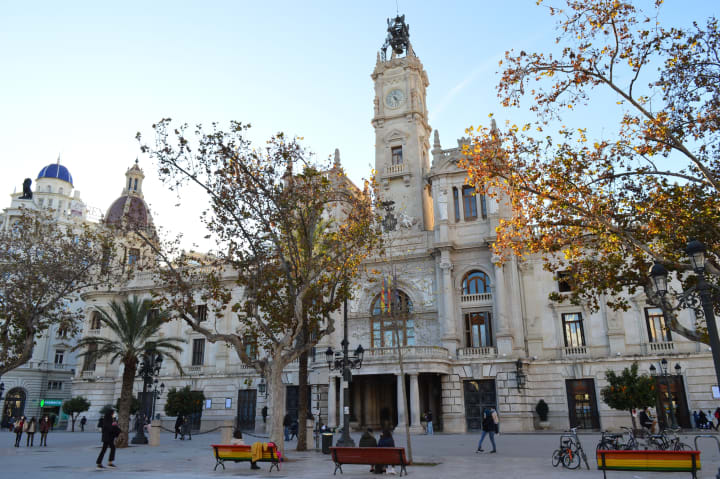
When you find the ten to twenty page form you need to complete an application, you will find you can't submit it on line. No. You have to print it out and take in person to an office. But first you'll need an appointment.
You might be able to make a booking for an appointment online. Maybe. If you’re lucky. They have time windows for this. A half-hour slot per day and not at weekends. After that they turn it off. What?
You'll spend days or weeks trying to get an appointment during your half hour booking slot. They start at 9am and you'll be told at 9.01am that all slots are full.
Once you do get an appointment, you will need to go to the required government or company office about six weeks later and join the virtual queue. Eventually a telepathic Valenciano lets you know it’s your turn and you get to sit at a desk in front of an official brandishing a rubber stamp.
You will sit and watch as the official copies your ten to twenty page form into their computer. With one finger. Then they’ll stamp each page with an official red seal using their trusty rubber stamp. They are very nice about it. And relaxed. Too relaxed.
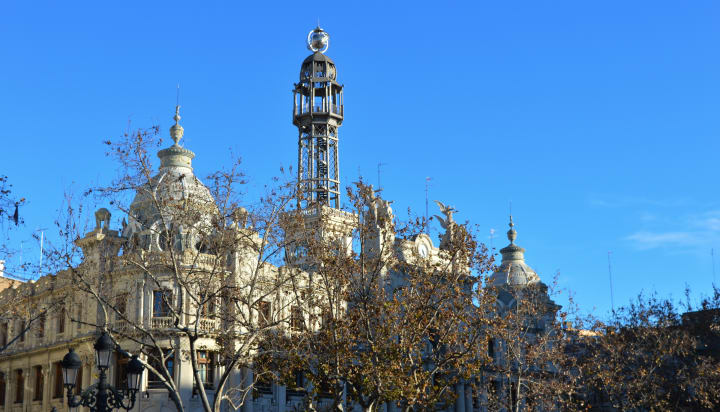
Local events usually won’t appear on an event location’s website. Or if they do, they are often wrong. I guess it’s not necessary when everyone communicates by telepathy.
The Politics (La Politica)
Goodness me, Spanish politics. No two or three party systems here. We have: the PP, the PSOE, Podemos, Vox, Cuidamos, UPyD, PACMA, ERC, JxCat, EHB, CC-PNC, NA+, PRC and Compromis.
Compromis is Valencia's own regional political party (I have no idea why), but many of the others are here too.
I don't know what any of them stand for, it’s far too confusing. I do know they're all united on one single policy - to disagree with everything everyone else says.
The Football (El Fútbol)
There’s no way Valencia could have become my hometown with having top-level professional football. Known around the entire world as football, fussball, el fútbol, futebol and le football except in the USA where, for some inexplicable reason, it’s called soccer.
The Valencianos are crazy about football and Spain has La Liga, one of the best football leagues in the world. Football is known as fútbol in Spanish and definitely not súccer.
The Valencian Teams (Los Equipos Valencianos)
Valencia has two teams, both in the top division of La Liga: Valencia CF (Club de Fútbol) and Levante UD (Unión Deportiva).
I have adopted Valencia CF as my team, largely because they’re closer to my home and they’re historically more successful than Levante. And because Levante’s nickname is La Granota which is Valenciano for frog and I’m not going to support a team called the Frog.
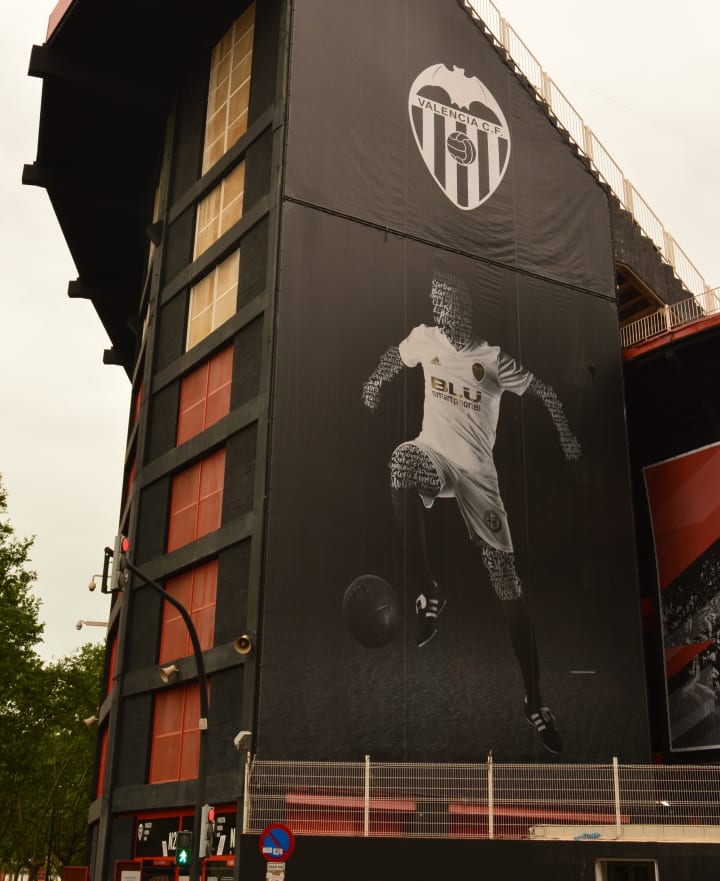
I just wish Valencia had a cricket team, but I suppose you can’t have everything in life.
The Mestalla (El Mestalla)
El Mestalla is the most important building in the whole of Valencia. It’s more important than the medieval Santa Maria Cathedral, the 14th century Convent of Saint Domingo, the Gothic Palace of Aragon, the 16th century Monastery of San Miguel, the UNESCO recognised Silk Exchange or the City of Arts and Sciences situated in ‘the River’.
Did I say I liked football? Well, El Mestalla is the home stadium of Valencia Club de Fútbol.
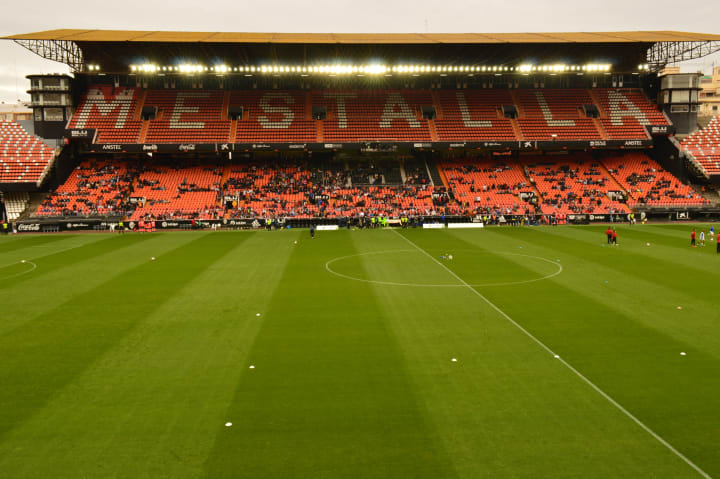
The Mestalla is one of the oldest stadiums in Spain, and definitely the steepest.
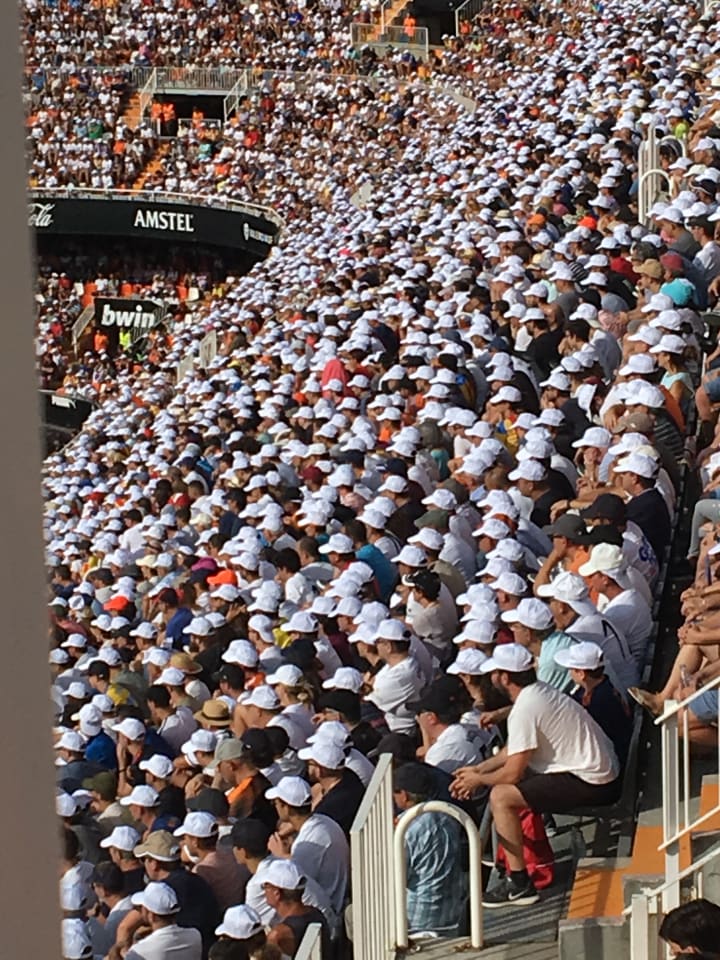
El Mestalla was seriously damaged by the great flood of 1957 which is probably the main reason the river was subsequently diverted. Forget all those medieval and UNESCO buildings, once flooding stops football, it’s time for action. Quite right too.
Sadly, the owners of Valencia CF want to move to a new stadium and sell the beautiful old historic Mestalla to developers who will demolish it to develop expensive apartment blocks.
That’s almost as bad as building a motorway on ‘the River’. Come to think of it, it’s worse.
The Food and Drink (La Comida y La Bebida)
The price of a bottle of wine starts at around 99c. This could be the main reason I made Valencia my hometown. That and football. Maybe the weather too. Perhaps the Turia Gardens, the restaurants, the transport, the beach, the lifestyle, cost of living and the free public and inexpensive private medical services.
Much of the Community of Valencia outside the city is agricultural and, more importantly, wine country. The Community of Valencia is well-known worldwide for its oranges. Rice is cultivated just outside the city in a watery region known as Albufera and the rice-based Paella is the Valencia national (read regional) dish.
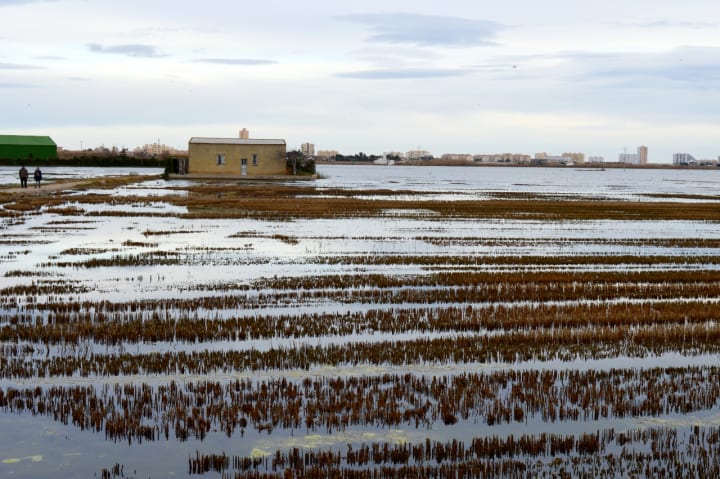
But let’s get back to the wine, for which Valencia is less well known; it’s another secret we don’t want to share. Utiel-Requena is the main wine-growing region, about 50 miles west of the city. There’s another area near Alicante which I guess is for the Brits there.
Aside from some of the well-known Spanish and French varieties, Valencia is home to two local grapes. Bobal is a light red grown mostly in Utiel-Requena and Monastrell, a fruity red from Alicante. I’ve never found these varieties outside Valencia. Thank goodness for that, all the more for me and my fellow Valencianos. Our secret.
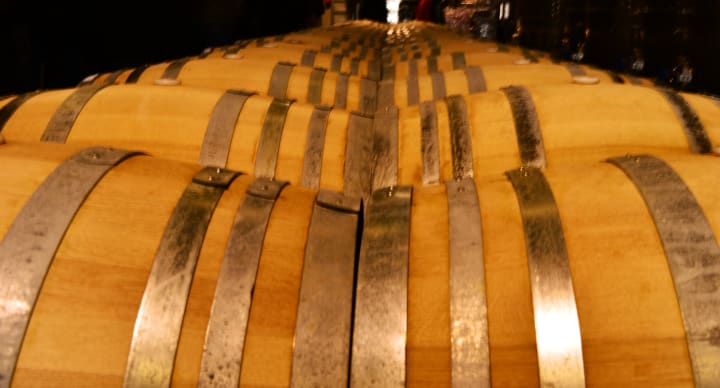
I still draw the line at drinking wine at 10am though.
My Secret Hometown
While Spanish guides tend to focus on Barcelona, Madrid and even Sevilla and Córdoba, my adopted hometown of Valencia remains a secret pleasure.
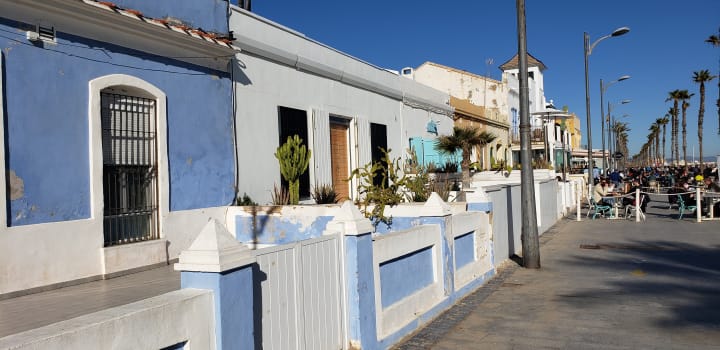
As someone whose previous hometown was an industrial new town 25 miles east of London overlooking oil refineries and marshes with grey skies, the frustrations of the music scene, the bureaucracy and my lack of telepathic skills are a small price to pay for living in Valencia.
Valencia is a major city with a small town mentality. We have great transport, el fútbol, high-quality health services, ‘the River’, empty internet networks, the beach, a wonderful year-round climate and a low cost of living. And the wine.
Let's keep the secrets of my hometown Valencia between us, shall we?
Alex Markham 2021. Photos taken on my Nikon D3200 DSLR, Samsung S9+ phone and a couple on my old iPhone 6s.
About the Creator
Alex Markham
Music, short fiction and travel, all with a touch of humour.


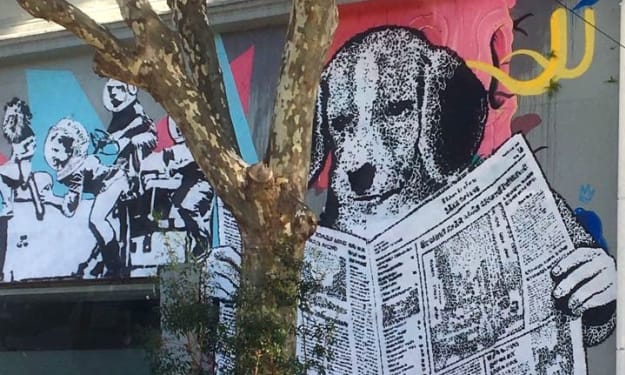



Comments
There are no comments for this story
Be the first to respond and start the conversation.